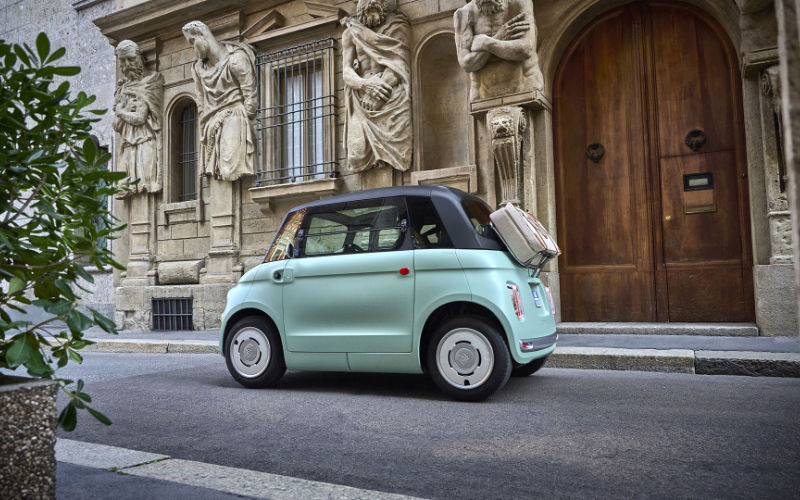Stellantis Offers to Remove Italian Flags from Morocco-Made Fiat Topolinos Amid Controversy

The Stellantis automotive group, which produces the Fiat Topolino, a 100% electric ultra-city vehicle, in the Kénitra plant in Morocco and exports it to Italy, has sent a message to its customers, which reignites the controversy.
"Dear customer, we are informing you of an initiative that Fiat has chosen to undertake in recent weeks. As you may have noticed, on your Topolino there are two small stickers representing the Italian flag on the doors. In view of some recent misunderstandings, we are at your disposal to remove them at our expense. You just need to go to your authorized Fiat repairer. If you have already sold your vehicle, please let us know the name and address of the new owner." This is the message sent by Stellantis to its customers. This is enough to reignite the controversy over the Fiat Topolino, the 100% electric ultra-city vehicle, which it produces in the Kénitra plant in Morocco and exports to Italy.
Last May, the Italian police had seized more than 134 Fiat cars imported from Morocco on the grounds that a sticker in the colors of the Italian flag affixed to their doors could give a false indication of their origin. The operation took place in the port of Livorno. The group was accused of having produced the Fiat Topolino in the Kénitra plant in Morocco and of having stuck an Italian flag on the vehicles, which could give the Italian customer a misleading indication of the place of production. Stellantis had then published a press release in which it assured that it had regularly declared, since the beginning, that these vehicles were indeed manufactured on its site based in Morocco. According to its explanations, the placement of the Italian flag was intended solely "to indicate the origin of the brand (Fiat, editor’s note)". "In order to resolve all the problems, it was decided to intervene on the vehicles impounded by removing the small stickers, subject to the authorization of the authorities," added the Italian-French-American group.
This sealing of Stellantis’ cars came in the wake of the disagreement between the Italian government and the group over production choices. According to Rome, cars marketed as Italian products should be produced in the country. This is how last April, the first electric city SUV from Alfa Romeo made in Poland had abandoned the name Milano chosen in reference to the city of Milan where the Alfa Romeo brand was born in 1910, in favor of the name Junior.
Related Articles
-

Chemical Giant Syensqo Shakes Up Leadership Amid Industry Headwinds
18 September 2025
-

Moroccan Tomato Scare Debunked: EU Import Ban Proven False
18 September 2025
-

Morocco’s Meat Market Stabilizes: Prices Hold Steady Despite Global Pressures
17 September 2025
-

Casablanca Financial Scandal: Massive Money Laundering Scheme Uncovered
16 September 2025
-

State Vehicle Spending Surges: Fuel Costs Devour Budget
16 September 2025